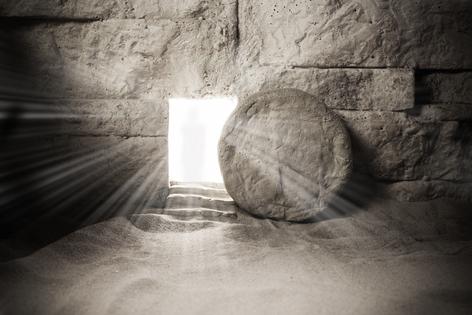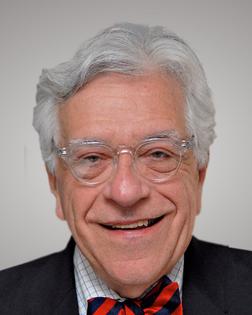The God Squad: Passover and Easter but mostly Easter
Last week we offered Passover blessings. This used to be Father Tom Hartman’s job but now I have to cover both our paths up the same mountain. This week, I offer my heartfelt blessings to all my Christian readers for a joyous Easter this Sunday, April 4. In the winter, it is just not possible to understand the Christianity by unpacking Christmas, and it is not possible to understand Judaism by trying to dig deeper into Chanukah. Christmas is about future possibilities and Chanukah is about past struggles. However, in the springtime Passover and Easter reveal to us in a thousand large and small ways, the essence of and the interconnectedness of our two great faiths.
Let’s start with the way Christianity transformed and reimagined the Passover seder meal. The Seder is a meal filled with symbolic foods, foods that symbolize slavery and freedom, springtime and emancipation. That emancipation was primarily physical. We were slaves and then through God’s miraculous intervention, we were free. Easter is an emancipation from sin, which is the worst kind of spiritual slavery. Nothing in the Exodus from Egypt saved us from sin, but everything about the Christian story of Jesus’ death and resurrection saves all Christian believers from sin.
The Passover is about an ancient sacrifice of a lamb, eaten by Jews on the hillsides around Jerusalem in the first Passover meals. In Easter, Jesus is the lamb — the lamb of God (John 1:29) — and in the Eucharist meal Christians consume God’s ultimate sacrifice, the sacrifice of God’s only begotten son. The seder is a meal eaten for God. The Eucharist is a meal eaten of God.
Even Christian denominations that do not take Communion every Sunday, take it on Easter. The two meals are at the heart of both faiths and they define and differentiate both faiths. The Gospels of Mark, Matthew, and Luke all teach that the Last Supper was a Passover Seder. The Gospel of John teaches that the Last Supper occurred on the day before Passover. Some American Christians have taken to celebrating Seders during Holy Week as a way of connecting to the roots of their religion.
Both Passover and Easter contain miracles that defy reason but are completely congenial to faith.
Passover invites Jews to believe in the extraordinary proposition set forth in Exodus, “In every generation, you shall tell your child that all this is because of what God did for me when I left Egypt.” (Exodus 13:8) To believe that the Exodus was an ancient event is easy but not what is required. To believe that the Exodus is a personal event is both impossible and yet true for believing Jews.
Easter invites Christians to believe that ordinary bread can become the body of Christ and ordinary wine can become the blood of Christ. It invites believing Christians to believe that a dead man can be resurrected and that his death and resurrection can redeem all believers from sin and usher them into the Kingdom of Heaven. This assault on reason is also an invitation to faith.
The point is that every great faith contains at its heart a mystery. There are things that reason cannot comprehend but those very things beckon us to believe that God’s ways are not our ways. To just believe in propositions that reason can endorse is science, but science is the domain of what is. Faith is the domain of what matters and what matters most is hope — hope that we will be free of all that constricts us and hope that death is not the end of us — hope that sin will not doom us.
I am a rabbi and a Jew, and Tommy was a priest and a Christian for the same reason. We both believed in hope and we both believed that the source of that hope is God. The ways that God enters history in Egypt or in Golgotha differ, but they are the same in important ways. They offer us a God who loves us in sin and slavery. They offer us a God who begins where reason ends. The great paleontologist Stephen J. Gould called religion and science “Non-overlapping magisteria”. They complement and need not compete with each other; they are the two parts of what it means to be human in a broken world.
I pray for all my beloved Christian friends that they might have a joyous Easter in as many churches as are open and with as many family and friends who are able to gather together. Mostly I pray that this is the last Passover/Easter springtime when we will be encased in our pandemic bubbles. May next year enable us to find each other and by finding each other also find the God who is certainly the author of every deliverance.
Happy Easter!
(Send ALL QUESTIONS AND COMMENTS to The God Squad via email at godsquadquestion@aol.com. Rabbi Gellman is the author of several books, including “Religion for Dummies,” co-written with Fr. Tom Hartman.)
©2021 The God Squad. Distributed by Tribune Content Agency, LLC.
(c) 2021 THE GOD SQUAD DISTRIBUTED BY TRIBUNE MEDIA SERVICES, INC.










